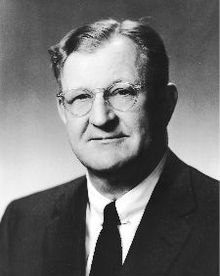
 Summary: The US Supreme Court's decision on Alice continues to have a profoundly positive impact (except for trolls) and Koch-funded academics try hard to compel the US Supreme Court to reverse/override Alice (so far to no avail)
Summary: The US Supreme Court's decision on Alice continues to have a profoundly positive impact (except for trolls) and Koch-funded academics try hard to compel the US Supreme Court to reverse/override Alice (so far to no avail)
THE American patent office is the world's "foremost" (or leader) when it comes to impact or importance. This is of great advantage to the United States and maintaining credibility/reputation/appeal for that Office is thus crucial. Introspection and reflection are essential.
This year’s stupidest patents include several glaringly obvious and unoriginal ideas, including the “invention” of automated out-of-office emails, a way to organize files on a computer, software that helps users count calories, and a disturbing trend of patents being granted on the use of routine and well-known artificial intelligence techniques.
Yet the U.S. Patent Office gave each of these protection that now lasts 20 years. Some of the patents were approved this year; in other cases, 2017 marked the first time a troll tried to enforce them, often against a wide range of users and third-party developers who were almost certainly unaware of the existence of the claimed inventions.
Nazer believes none of these patents should have been granted in the first place, having failed to overcome the basic legal requirements of being both original and non-obvious. A big part of the problem, he says, has to do with how the patent office works. “Patent examiners spend an average of only 18 hours reviewing each application,” he told me, “which is grossly inadequate.”
[...]
That’s the case with EFF’s January winner, a patent granted to CBS Interactive for software that allows users to “interact” with song lyrics by reviewing and entering annotations. Ditto for a patent, recently asserted against Uber and Lyft, that purports to cover all software that “determines if a taxi is free,” and, if so “sends the current location of the taxi to the taxi dispatch server.” And then there’s a patent granted to HP for software that sends calendar reminder messages, which the patent office reviewed for years “without ever considering any real-world products” that already existed.
"It would be good for the EPO to have a similar type of scrutiny as it helps highlight and potentially weed out patents that become a liability."It's worth noting that much/many if not most/all the above are software patents. Far too many such patents were granted by examiners and after Alice it seems plausible that almost all of them are bunk. We say almost because there are exceptions. The other day, for example, a patent maximalist cherry-picked and wrote that "PTAB Reversed Examiner on 101/Alice Rejection of Printing Claims--Not per se Software: https://storage.googleapis.com/pbf-prod/pdfs/2017-11-30_13584785_175081.pdf …
Usually it's the opposite. So the above is a case of "man bites dog". It seldom happens. For a less selective coverage regarding Alice see what the EFF's Daniel Nazer wrote just before the weekend: "Important Federal Circuit ruling today affirms a district court fee award against a patent troll. Appeals court agreed that patent owner should have known its patent was invalid under Alice v CSL Bank. http://www.cafc.uscourts.gov/sites/default/files/opinions-orders/16-2442.Opinion.12-6-2017.1.PDF … [...] This is important because many of the worst patent trolls (e.g., eDekka LLC, Shipping & Transit LLC) have patents that are clearly ineligible under Alice. When faced with fee motions, these trolls try to distract court by arguing 101 jurisprudence in general is too uncertain."
"These are cowboy hat-donning non-scientists pretending to care about inventors."Also see this other tweet that said: "Inventor Holding 12/8/17 patent claims invalid under 101, attorney fees from date of Alice decision..."
This is pretty significant.
Make no mistake, however, as this feud certainly isn't over and the patent trolls' lobby is still active. CCIA apparently had "lunch @ManagingIP and now we’re on to everyone’s favorite, software patents."
Yes, software patents are still on the agenda. Rabid, frenzied lobbyists want them back. They constantly fight for that and perpetually mislead. So did Adam Mossoff from the pro-patent trolls (and overtly right wing) think tank. He wants software patents back in the US. "CPIP Scholars" (think tank for the Koch brothers) said that "CPIP Scholars @AdamMossoff & @Patent_Lund File Amicus Brief Urging Supreme Court to Fix Section 101. #Fix101 #PatentsMatter https://cpip.gmu.edu/2017/12/06/cpip-scholars-file-amicus-brief-urging-supreme-court-to-fix-section-101/ …"
"No intellectual argument can defend their position, so ignoring or even blocking people is the best they can do."They're aiming directly at Alice. The headline is "CPIP Scholars File Amicus Brief Urging Supreme Court to Fix Section 101" (by "Fix" they mean subvert, water down) and there's another misleading new article titled "Protecting intellectual property in America is harder than ever," composed by a pro-software patents lobby which is just a tiny platform of extremists (they call themselves “US Inventor”). "This op-ed completely misconstrues multiple patent issues," a writer from TechDirt had said about it before I told him who “US Inventor” actually was. These are cowboy hat-donning non-scientists pretending to care about inventors. They're closely connected to Watchtroll. "IPWatchdog," he responded. "where intellectual honesty goes to die..."
Indeed. Watchtroll (IPWatchdog) is so dishonest that when its founder lost an argument to me (over software patents, revealing that he did not know how software even works!) he decided to just block me in Twitter. No intellectual argument can defend their position, so ignoring or even blocking people is the best they can do. The same is true for the Conservative ilk of Adam Mossoff (who apparently reported me to Twitter for not agreeing). ⬆